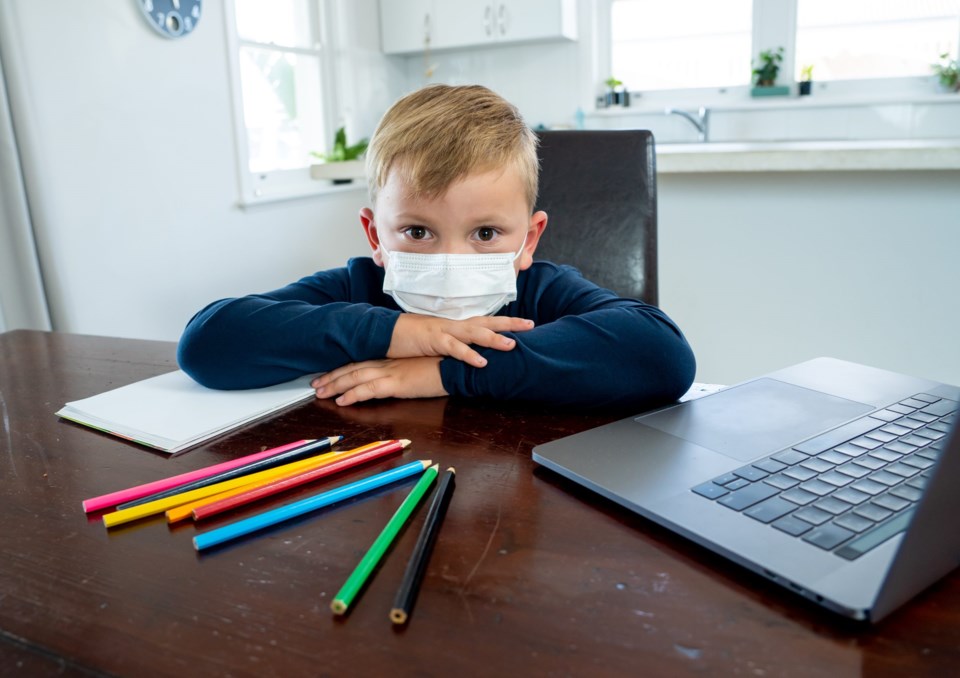As schools reopen this year, parents and teachers are burdened with a new task: preparing their children and students for social distancing, hand washing, and wearing face coverings for extended periods of time. It’s a different world and people have had to make adjustments, that includes our youngest generations.
Behavioral Healthcare Manager Vanessa Simpson has seen and heard from students first-hand about the direct impact COVID-19 has made on their lives and new anxieties that have resulted from it. As a therapist for Children’s Health School-Based TeleBehavioral Health program, Simpson works with students virtually on a day-to-day basis.
In 2017, Children’s Health launched the pilot program in Carrollton-Farmers Branch Independent School District, where therapists saw that there was a great need for students to receive behavioral healthcare. Since then, the 100 percent virtual program has been implemented in more than 170 schools in seven different districts.
While anxieties surrounding COVID-19 have increased in students returning to school, it’s not new for Simpson and other program therapists to see students with anxiety about returning to school and trepidation about the school year. Anxiety is one of the three most common struggles Simpson helps students face, as well as depression and ADHD. They also see many children with adjustment disorders who may only need to be seen for a few sessions as well as students who are struggling with bullying or are on the autism spectrum.
“Maybe a student is adjusting to a big life change—COVID-19 would definitely fall into that—or maybe they just moved or their parents have recently gone through a divorce or separation,” Simpson says.
This is the first year parents will be able to enroll their children in the short-term program and receive the first four sessions for free. (There may be additional costs later, but Children's tries to keep costs low if more sessions are needed.) Currently, six state-licensed therapists provide services to the more than 170 schools participating in the telehealth program, and they are looking to hire more to expand their services to more students and schools. Mckinney, Plano, Prosper, Allen, Blue Ridge, and Frisco Independent School Districts within Collin County are providing the School-Based TeleBehavioral Health program.
Supported by a grant and government funding, which makes it accessible to every student, the program takes place over four to 10 sessions. Long term counseling resources are also available after the program ends. That includes more specific counseling services like those who need family or trauma counseling.
To enroll parents should inquire with their school counselor to see if their school is participating in the program and receive a referral from the same counselor in order for the child and student to receive assistance.
Parents who want to help their children at home can do so by creating an atmosphere where their children feel comfortable to communicate. Simpson often guides parents on what important actions they can take at home. She says, “I think the biggest thing I encourage is open communication. I encourage really strong listening for parents in a nonjudgmental way, so that they can really understand what their child is going through. Not being afraid to ask questions and not being afraid to just be present with their children.”
Other resources Children’s Health offers for parents is through seminars, presentations and training programs offered in the community and at area schools. The Mental Health First Aid program, for example, is another public service that helps educate individuals how to identify signs that youth may need mental health assistance and how to provide that assistance.
In regards to the School-Based TeleBehavioral Health program, Simpson emphasizes, “Our program is really designed to help with barriers to access to mental healthcare. I think our program provides a great opportunity for students to have someone to talk to and to provide that support in a pretty convenient way.
"I’ve noticed an increase in students telling me that they are worried or feeling anxious or even sad. Because they are missing their friends and they’re missing the normalcy of what their previous school years have offered them.”
In addition to these newly identified stressors for students, Simpson has also noted that parents are stressed about having to navigate online learning and online schoolwork and sometimes adjusting to working from home with some kids remaining at home for virtual learning this year depending on individual family needs.
“It’s a lot of changes I think that, myself included, but a lot of the families I talk to did not think that we would continue to see the impact of the changes for this length of time,” she says. “So navigating what that looks like at the beginning of the school year is adding a lot of stress to both parents and students.”
To view program details visit: childrens.com/specialties-services/virtual-care/school-based-programs/school-telebehavioral-health.




